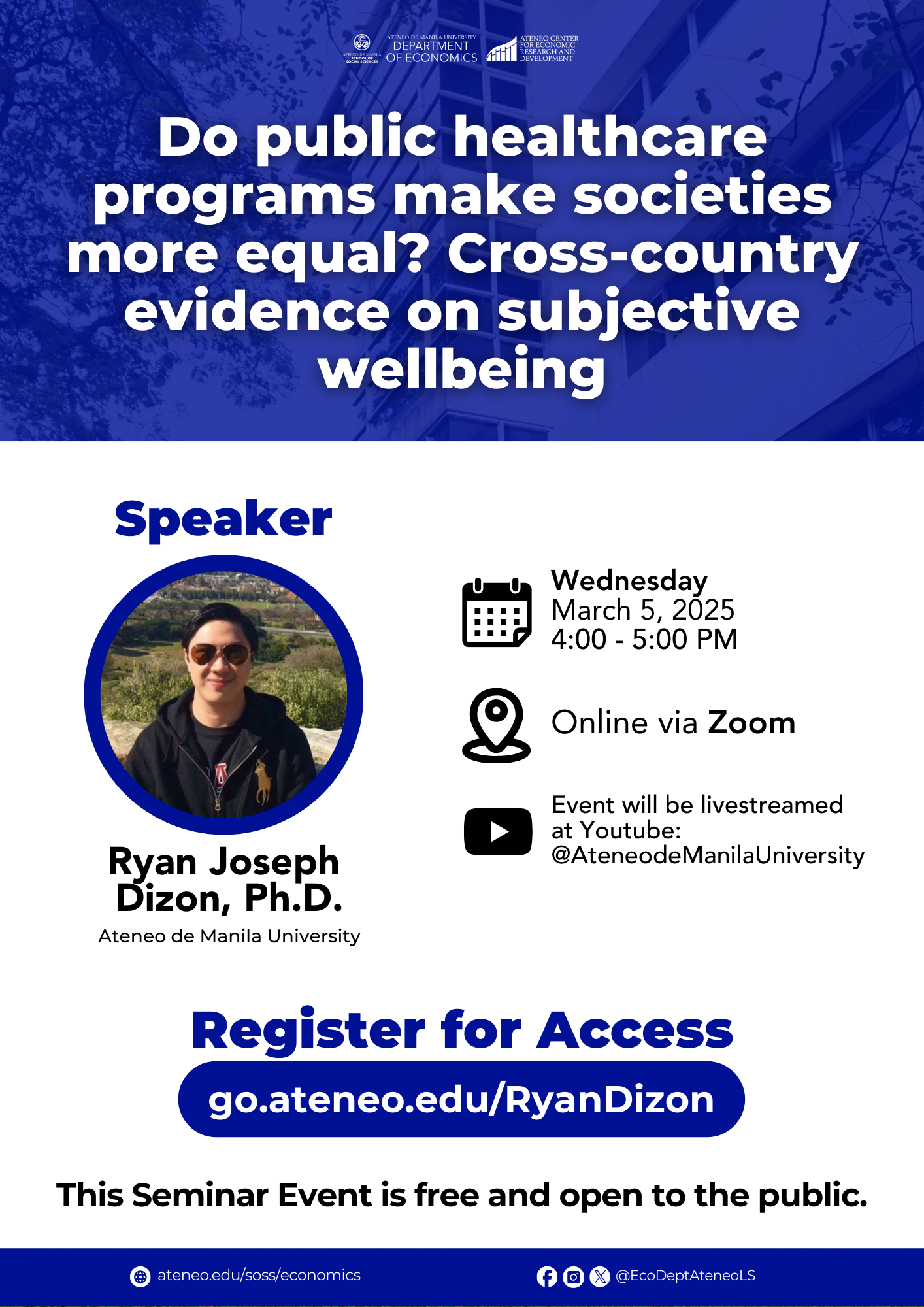Workshop / Seminar / Short Course
Do public healthcare programs make societies more equal? Cross-country evidence on subjective wellbeing
Universal health coverage (UHC) aims to provide quality healthcare services and safeguard the population from the financial burden of catastrophic health expenditure. Its primary objectives are to improve longevity and enhance overall quality of life. This study investigates the relationship between UHC and the inequalities in subjective wellbeing (SWB) and explores whether public health programs can help reduce social inequality. By employing SWB inequality as a measure, we go beyond the conventional income-centric approach to assess social inequality. The SWB data for this study are sourced from repeated cross-sectional surveys conducted by the European Values Study (EVS) and the World Values Survey (WVS). We employ statistical techniques, including ordinary least squares, Oaxaca–Blinder decomposition, and the recentered influence function (RIF). The RIF allows us to characterise the entire distribution of SWB, rather than focusing on a single point. The findings indicate a negative association between UHC programs and SWB inequality (-0.070, significant at the 5% level). This negative relationship is observed at the 5th, 50th, and 75th percentiles of the SWB distribution, whilst it turns positive at the 95th percentile. Overall, UHC programs do not contribute to the SWB inequality gap.
Ryan is a full-time faculty member of the Economics Department of the Ateneo de Manila University. He earned his Doctor of Philosophy (Economics) from the University of Wollongong, Australia, where his doctoral research explored the interplay between universal health coverage, subjective wellbeing, inequality, and fertility patterns.
Please join us via Zoom! You may register HERE.





